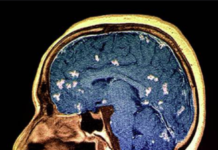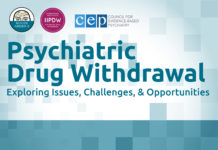The RADAR trial is complete. Disappointingly it showed that people who gradually reduce their antipsychotic medication are more likely to relapse than people who continue it. At 2-year follow-up there were no differences in social functioning, symptoms, side effects or quality of life. Yet relapse was far from inevitable and the qualitative analysis showed that some people felt empowered by the opportunity to reduce their medication with official support, regardless of the outcome.
Running the RADAR study is by far the most difficult thing I have done in my professional career, and I would like to take the opportunity provided by the publication of its results (Moncrieff et al, 2023) to reflect on what I have learnt from the process of doing it, as well as the results.

The RADAR study involved a randomised trial comparing a gradual strategy of antipsychotic reduction (with discontinuation where possible) with maintenance treatment in people who had experienced recurrent psychotic episodes or been diagnosed with schizophrenia.
From the beginning I was supported by a strong team of experienced psychiatrists and academics who helped me with the practicalities but also gave the study credibility. They included people who have worked with drug companies in the past, but everyone acknowledged that antipsychotic drugs are unpleasant and potentially harmful, and that we need to research alternatives to life-long treatment. The trial was also supported by a team of people with lived experience of psychosis and the use of antipsychotics, who gave their time generously and provided constant encouragement.
I learnt how difficult it is to do a randomised trial, especially when the options are radically different from each other. Most trials struggle to recruit enough participants, partly because many people don’t like the idea of having their treatment decided for them by the role of a dice (or a computerised randomisation programme). But the RADAR trial was not offering people an additional treatment, like many trials, it was offering people the possibility of receiving two quite different treatment strategies—continuing their antipsychotic or reducing it with a view to stopping it if the reduction proceeded smoothly.
Understandably, people who are already on antipsychotics often have strong views about whether they want to stay on them or not. So despite our best efforts, we did not recruit as many patients as we had originally intended. Still, we managed to recruit 253 people, and this was down to an incredible effort by my hard working and devoted local research team and to an amazing network of NHS research sites around the UK. The people recruited had a long history of contact with the mental health services on average, including numerous admissions, and were comparable to the general population of people under the care of community mental health services in the UK with the same profile of problems (diagnoses) (Freudenthal et al, 2021).
We ended up enrolling people from 19 different areas and organisations and in each one there was a team of people supporting the project. I was also reminded of how many good psychiatrists there are in the UK. Each area required a psychiatrist to support the study and this was a job that required commitment and nerve—some of these psychiatrists had to face down colleagues who thought the study shouldn’t have been done. They did it because they believed it would provide patients with better evidence about their treatment and improve their lot in the long run.
What about the results (see Moncrieff et al, 2023)? Most previous trials have taken people off their antipsychotics over a few days or weeks, and relapse was often defined in such a way that it could have consisted of symptoms like agitation or insomnia, symptoms that may be due to a withdrawal effect. When we planned the RADAR study, we hoped that reducing antipsychotics slowly would prevent serious relapses (which we defined as hospitalisation to ensure it reflected a significant deterioration). It didn’t. People randomised to the reduction strategy were more likely to be hospitalised with a relapse compared with people randomised to maintenance treatment (25% vs 13%). Relapses were full-blown psychotic relapses, not minor deteriorations, and people who reduced their antipsychotics did not show any improvement in their social functioning that might have compensated for this.
On the other hand, people in the reduction arm didn’t show any deterioration in their social functioning by the end of the study either, and psychosis symptoms were also the same in both groups at this point. There were no differences in any of the outcome measures at the two-year follow-up, including quality of life and side-effect scales. It will be interesting to look at the data in more detail (which we will do in the future), but it looks as if having a relapse, even one that requires hospitalisation, did not lead to long-term decline, as is sometimes suggested.
The results are not surprising and they are similar to the initial results of the Wunderink study conducted in the Netherlands which involved people with a first episode of psychosis. Wunderink and colleagues also found an increased rate of psychotic relapse at their 18 month follow-up and no difference in social functioning (Wunderink et al, 2007). It was only at the 7-year follow-up that social functioning was better in people who had originally been randomised to reduction, and that relapses had evened out (Wunderink et al, 2013).
The RADAR results show how difficult it is for people to stop antipsychotics once they have been taking them for a while. The RADAR trial did not provide any specific additional support to people who were randomised to reduce their antipsychotic medication except for more frequent monitoring by their psychiatrists (because we did not have the resources to do this). Participants in either arm could be referred for psychological therapy or general social support as provided by their local service and we also gave people information about local support groups. However, more specific support may have been beneficial and if I were to do this sort of study again, I would certainly want to provide something of this sort.
I wrote about the possible ways of explaining an adverse outcome after stopping a drug almost two decades ago now (Moncrieff, 2006a; Moncrieff 2006b), and other eminent researchers have echoed my analysis (Tondo & Balessarini, 2020). One possibility is that the drug was suppressing an underling pattern of problematic behaviour that surges back when the drug is removed. I think this is the case for some people. Another possibility is that the process of drug withdrawal induces psychotic symptoms, as has been shown to occur in some people who have no history of psychosis or even mental illness. A gradual withdrawal process should make this possibility less likely, but it is difficult to say whether the reduction in the RADAR trial was gradual enough to eliminate it entirely. We know that most people who withdraw gradually from benzodiazepines or antidepressants still experience withdrawal symptoms, after all. A related possibility is that the experience of drug withdrawal precipitates a relapse of the underlying problem. Again, gradual withdrawal would be expected to reduce this possibility but not necessarily to exclude it. The qualitative results (which are just published too), which highlight the emotional rebound that can occur after antipsychotic reduction or discontinuation, suggest it can metamorphose into psychosis and psychotic relapse and support this possibility (Morant et al, 2023).
I don’t want to underplay the effects of having a full-blown relapse, but the qualitative results show that for some people, the process of reducing their antipsychotics was empowering regardless of the outcome. For some, the RADAR trial was the first time they had been offered anything other than continuous drug treatment and the first time they had been really involved in making decisions about their own future. Some went back onto their medication but felt better able to accept it, and some looked forward to getting off it eventually, even if they had not succeeded so far.
Some members of the group of people with lived experience of psychosis who supported the study were also empowered to ask for different approaches to their personal treatment.
Although the trial showed that you are more likely to relapse if you stop or significantly reduce your antipsychotic medication, it did not show that relapse is inevitable. In fact, 72% of the people who discontinued their antipsychotics across both groups (47 people) did not have a serious relapse, and 71% of the 109 who reduced their antipsychotic by at least 50% did not. Thirteen people in the reduction arm and 8 in the maintenance arm were off antipsychotics by the end of the trial.
The data from the RADAR trial enables people to make more informed decisions about their antipsychotic treatment. We can say that if you come off reasonably slowly over 1-2 years you will be more likely to relapse than if you stay on your medication. Not everyone will relapse, however. The majority will manage to avoid a relapse—whether that is by increasing their medication again or through other means. Around 10% might manage to stop their medication completely.
And above all else, the fact that the RADAR trial was funded, completed and supported by so many patients and professionals underlines that antipsychotic treatment is far from ideal, and that we need to explore alternative ways of supporting people who experience psychotic states.




Hi Joanna, I don’t know if you are seeing these comments, but I wanted to leave a comment to say some things about the work you have done in running this trial. Firstly thanks a lot for looking into this question, as it is something that has affected me quite profoundly in my life, along with a lot of other people in the same position as me. I am still taking neuroleptic medication after many years living with mental health problems, but don’t want to resign myself to thinking that this is going to be my life for the rest of my life, as all of the neuroleptics I have taken over the years have caused me problems in different ways, and I don’t like the way they make me feel or the way that they affect my ability to live my life. The one that I am on currently (Olanzapine) makes me feel dopey and lethargic and I want to rest a lot of the day instead of getting on with things, which is not much of a life. I think that sometimes when people try to come off their meds, and often end up in trouble due to withdrawal effects, people see it as some kind of big mystery why someone would want to do that, but really that doesn’t acknowledge how unpleasant it can be living on these meds for a long period. I have been looking for a way to reduce or come off my medication for quite a long time now and have several attempts but not managed to do so, which is why I appreciate someone making the effort to look into this question properly. I find it disappointing that the results weren’t more positive, but it’s still worth knowing what you found out. The main thing I wanted to say was that I had some suggestions about further questions that might be worth looking into. One thing is that I am pretty sure I remember reading in one of Robert Whitaker’s books (Anatomy of an Epidemic I think) that there have been longitudinal studies that have shown that two years is about the point at which people who have stopped their meds start to do better than people staying on them, so it is possible that the trial wasn’t held over a long enough period, particularly for those people who have been on neuroleptics for a long time. Another thing I was thinking is that it might be interesting to reanalyse the data to try to find out what it was that made it possible for some people to come off their medication. One possibility is that success in reducing or coming off medication might correlate with the amount of time someone has spent on medication in the first place, which would be worth knowing if it is true. Another thing is that it might be worth talking again to the people who have taken part in the trial and been able to reduce or come off their meds to see if there are any psychosocial factors they have in common that might relate to their success in reducing meds. Thanks for listening, Andrew Baxter
The study was registered in 2016, I think. I wondered if it is right to presume that the tapers were not based on the hyperbolic dose reductions suggested in later work?
https://markhorowitz.org/academic-paper/a-method-for-tapering-antipsychotic-treatment-that-may-minimize-the-risk-of-relapse/
I didn’t see any specifics on the tapers used in RADAR or any mention on hyperbolic reductions.
It would be good to see any outcomes studies incorporating that approach to dose reduction.
Very appreciative of Joanna’s guidance and leadership.
Congratulations to all the RADAR Trial researchers on this fantastic research project. It’s heartening to see scientists testing and questioning existing methodologies to open up new avenues for improving mental health treatment.
The research’s sample group was very small (I believe only 253 participants), so personally would be hesitant to put too much weight on these early findings as definitively conclusive or even representative of the experience or outcomes of the hundreds of thousands of people who are prescribed antipsychotics and decide to reduce or stop psychiatric drugs.
This is not meant as a criticism of the study or the researchers. I have a lot of admiration for Dr Moncrieff and her colleagues. I also celebrate their pioneering efforts in this recently published trial.
But it’s also important to highlight the potential limitations of the trial due to the difficulty of conducting a similar study with a larger sample size. Cancer or heart disease trials, like for instance testing the efficacy of beta blockers, would involve tens of thousands, or hundreds of thousands – if not even millions – of research participants.
I would be very pleased to see these inspiring researchers continue in their efforts – and urge them not to be disheartened by their early findings.
A very important study – and we look forward to the longer term results.
Needless to say, it is already being hailed by defenders of the status quo as ‘showing that antipsychotics work’. This is rubbish – the study is about withdrawal, not about whether the drugs ‘work’ (whatever that means). It shows that withdrawal is difficult, for all kinds of reasons that are still somewhat unclear (withdrawal effects? artificially-induced dopamine sensitivity? sudden exposure to all the emotions that the drugs had suppressed? lack of support and knowledge about tapering?) and may take longer than 2 years. Given the known downsides of ‘antipsychotics’, this is an extra reason to be cautious about encouraging people into long term use – they may well find they are stuck with the drugs, whether they want to be or not. We’ve seen this with other types of psychiatric drug, of course, so it is hardly a surprise to see it here too.
If those who did succeed in discontinuing (and it would be useful to partial out the data relating to this small group, including those in the ‘maintenance’ group who discontinued) were, as seems to be the case, no worse off at the end of the trial than those still on the drugs, then given the significant health risks of ‘antipsychotics’, there would be a strong argument for discontinuation being the preferred option. Of course, this is not what the status quo defenders are concluding.
What the study didn’t ask, and therefore can’t tell us, is whether people would have been better off not taking the drugs in the first place. There is ample reason to think that this might be the case (‘Anatomy of an Epidemic’ etc). This, of course, is the bigger and most important question…. If it was accepted that the risks, especially in longer term use, outweighed the benefits, then the question of withdrawal would arise much less often, and the process of withdrawal would probably be much less challenging anyway.